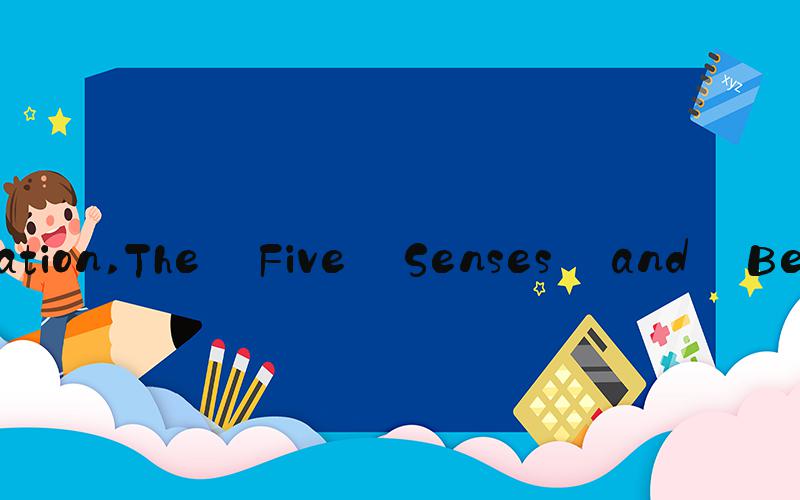
Sensation: A Mind-Body Connection
Sensation is the experience of a physical feeling or effect on the body. It is a fundamental aspect of our perception and allows us to interact with the world around us. Our senses provide us with information about our environment, which we then use to make decisions and take actions. Sensation also plays a vital role in our emotional and psychological well-being, influencing our moods, behaviors, and overall health.
The Five Senses and Beyond
The five senses – sight, hearing, touch, smell, and taste – are well-known, but there are actually many more sensations that we experience every day. For example, proprioception is the sensation of our body’s position, movement, and orientation in space. Equilibrioception is the sense of balance and spatial orientation, while nociception is the ability to sense pain. Each of these sensations is processed by different parts of the brain and plays a unique role in our perception of the world.
The Threshold of Sensation
Every person has their own threshold of sensation, meaning the point at which they can detect the presence of a stimulus. This threshold can vary based on a number of factors, such as our past experiences, age, and genetics. For example, someone who has spent a lot of time around loud noises may have a higher threshold for hearing, while an individual with a genetic predisposition to a certain taste may be able to detect it at a lower concentration.
The Mind-Body Connection
While sensation occurs in the body, it is closely tied to our mental and emotional state. Studies have shown that individuals who experience chronic pain often also have feelings of depression or anxiety. Similarly, increased stress levels can result in physical symptoms such as tension headaches or stomachaches. Mind-body therapies, like meditation and yoga, aim to improve both physical and mental health by addressing the relationship between the two.
Sensation and Perception
Perception is the process of interpreting sensory information and making meaning out of it. It is closely tied to sensation, as our brains use the information we receive through our senses to create our perception of the world. However, perception is also influenced by many other factors, such as our expectations, beliefs, and culture. For example, two people may experience the exact same sensation – like the smell of a particular food – but have very different perceptions of it based on their past experiences and cultural backgrounds.
Disorders of Sensation
Disorders of sensation can have a significant impact on a person’s quality of life. Some common examples include tinnitus, which is a sensation of ringing or buzzing in the ears, and neuropathy, which is damage to the nerves that can result in numbness or tingling in the limbs. Sensory processing disorder is a condition where the brain has difficulty processing and responding to sensory information, leading to behavioral and emotional difficulties.
The Future of Sensation
Advancements in technology are expanding our understanding of sensation and opening up new possibilities for treatment. For example, researchers are exploring the use of virtual reality to stimulate the senses and alleviate chronic pain. Wearable devices are also being developed to enhance sensory perception or compensate for sensory loss. As we continue to learn about sensation and its importance in our lives, it is likely that we will see further breakthroughs in how we experience and interact with the world.

